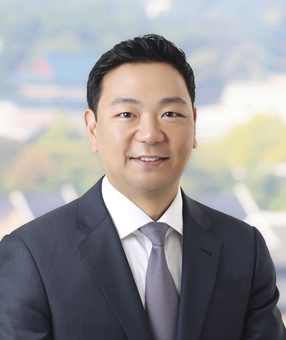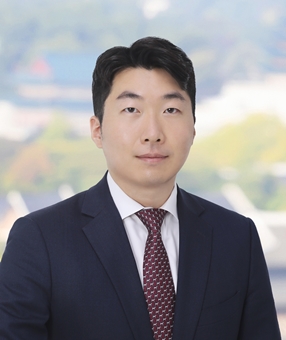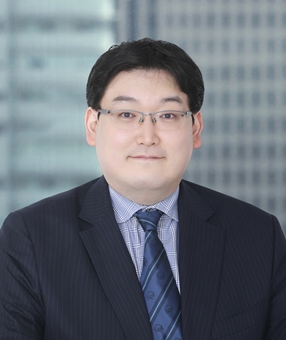|
1. |
Election Results and Upcoming Schedule |
|
2. |
Anticipated Key Policy Directions |
|
3. |
Technology Policy Priorities: A Deep Dive |
|
“Given intensifying global competition, we must make bold investments in cutting-edge industries and future technologies such as AI and deep tech. We are committed to taking proactive steps to position Korea as a global economic leader. (…) We also plan to establish and operate a dedicated organization to oversee regulatory reform.” President Lee, during a press conference on May 25, 2025 |
-
AI Transformation
The new government is expected to place its highest priority on developing the AI industry. During the campaign, President Lee pledged concentrated investment totaling KRW 100 trillion (approximately USD 73 billion depending on exchange rate) in advanced strategic industries such as AI, and placed AI industry development as his top policy agenda, launching an ambitious “AI for All” project. He also promised to strengthen the development and investment in next-generation AI infrastructure (e.g., securing a large number of GPUs), AI semiconductors, and quantum information & communication technology. He further pledged to improve related laws and systems, enhance the role of the National AI Committee, establish a Senior Secretary for AI and ICT Policy within the presidential office, strengthen future AI education, and foster AI talent. Overall, we anticipate the government to actively lead numerous initiatives that may influence various stakeholders across the AI industry.
Alongside its efforts to promote AI growth, the new administration is also expected to pursue policies aimed at ensuring AI safety. President Lee’s campaign pledged to foster a trustworthy media environment for the AI era, enhance data privacy protections on par with advancements in AI, and proactively tackle emerging forms of voice phishing and other abuses of AI technology. Notably, President Lee’s campaign also pledged to promptly establish subordinate regulations under the AI Basic Act, and businesses would be advised to closely monitor how the administration approaches the AI Basic Act scheduled to take effect in January 2026.
-
Platform Regulation
To foster a trustworthy media environment, President Lee pledged to enhance the responsibility of platforms to monitor and address fake news, extreme content, hate speech, and anti-social or unconstitutional content. He also pledged to form a national consultative body to integrate and improve broadcast and media governance and legislation and to revise the Act on the Establishment and Operation of Korea Communications Commission to strengthen the expertise of the Korea Communications Commission (“KCC”). Considering the foregoing, online platform businesses should expect amendments to current platform regulations.
Furthermore, with the ongoing debate around the enactment of a new Online Platform Act and the Democratic Party’s historical advocacy for ex-ante regulation of dominant platforms, President Lee’s campaign specifically pledged to enact such Online Platform Act aimed at preventing, among others, the abuse of monopolistic power and anticompetitive practices by large domestic and international platforms. Under such act, there is a strong likelihood of mandatory reporting of domestic revenue for large platform companies, a measure that appears to specifically target overseas platform operators.
A significant focus will also be placed on establishing a “fair network use contract system” – the primary goal of which is to establish a more formalized and regulated framework for how internet network capacity and traffic are accounted for and paid for by all parties, particularly focusing on the role and contributions of large content providers (both domestic and international) to network costs.
-
Data Protection and Privacy
The Personal Information Protection Commission (“PIPC”), which already oversees a privacy regulatory environment widely regarded as one of the most stringent in the world, is expected to have its role further strengthened. Given that the campaign pledges include both “redefining and strengthening the role of the PIPC” and “normalizing the KCC and enhancing its professional capacity,” such efforts could potentially lead to overlapping jurisdictional issues, creating complexities for businesses navigating data protection regulations across different agencies and requiring careful attention to compliance.
-
Cybersecurity
Cybersecurity will receive elevated importance, particularly in the wake of recent high-profile hacking incidents (e.g., a USIM hacking case involving a major telecommunications company, data breach cases of multinational brands, etc.). New initiatives and strengthened frameworks may be introduced to enhance national cybersecurity infrastructure and protocols. For instance, with “building a nation safe from cyber threats” as one of the key agenda items for public safety, the policy platform proposes to shift the cybersecurity framework from a traditional network-based approach to a data-centric protection system to better safeguard against data breaches. It also emphasizes increased transparency through mandatory disclosure of cybersecurity investments and the number of dedicated cybersecurity personnel. In cases of significant personal data breaches, companies could face mandatory, nationwide notification requirements. These proposals indicate that the new administration’s cybersecurity priorities will likely center on building more proactive and resilient response systems and may lead to heightened compliance obligations for companies. -
Media Policy and Governance
During his campaign, President Lee pledged to address regulatory imbalances (so-called reverse discrimination) between legacy media (e.g., broadcasting) and new forms of media (e.g., OTTs), as well as establishing a legal framework for promoting and regulating new types of media platform and content.
The campaign pledges also included the potential restructuring of the KCC. Based on such pledges, we anticipate the new administration will pursue changes to media policy and governance, which could affect licensing, content regulation, and market competition in areas such as broadcasting, streaming, and digital content distribution.
-
Contribution to Funds
Korean broadcasters and carriers, which are currently obligated to contribute to the Information and Communications Promotion Fund and the Broadcasting and Communications Development Fund, have consistently maintained that online service providers should likewise be required to make contributions. Given that the campaign pledges called for consolidating these two funds into a single “Media and Telecommunications Development Fund,” it would be important to monitor whether this restructuring could involve an expansion of the businesses required to contribute.
-
Other Notable Policy Points
|
– |
Diplomacy and Trade |
|
– |
Fair Trade |
|
– |
Labor |
|
– |
Taxation |
|
– |
Climate Response, Energy |
For a detailed breakdown of President Lee’s TMT-related campaign platforms, please see the Appendix (attached below).
|
4. |
What to Watch Next |
-
National Agenda Formulation
The initial focus will be on formulating the specific “National Tasks” for the new administration. It is imperative to monitor these details closely for concrete policy actions and their implications for the TMT sector. These tasks will serve as the administration’s blueprint for its five-year term.
-
Cabinet Appointments and Key Personnel
The initial Cabinet and key personnel are expected to be named swiftly. Historically, confirmation hearings are completed within a short timeframe (e.g., 54 days), indicating a rapid transition. The individuals appointed to these critical roles will significantly shape the implementation of TMT policies.
-
Further Policy Specification
Anticipate more detailed policy announcements and legislative drafts affecting businesses overseas in the coming months as the administration solidifies its agenda. These will provide the concrete regulatory changes that TMT companies will need to adapt to.
|
5. |
Conclusion |
Attachment Appendix_Democratic Party’s Election Pledges for the TMT Sector.pdf











